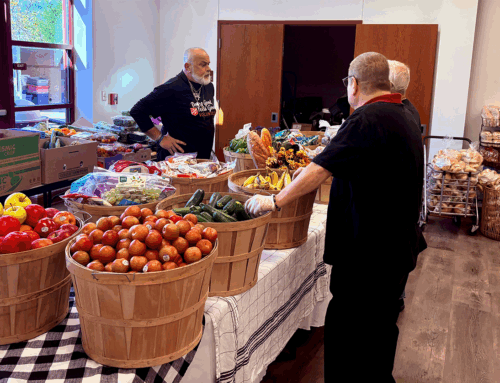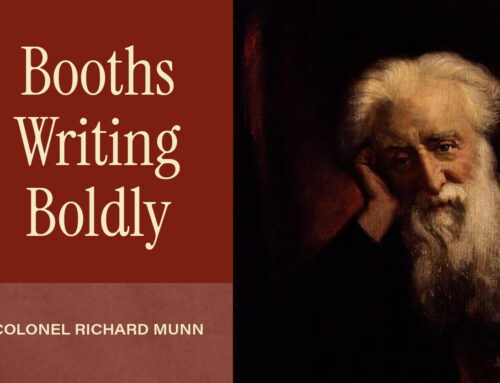This Black History Month, The Salvation Army and many other organizations have designated Juneteenth as a company holiday. Nike, the NFL, Best Buy, and Target have made similar announcements. They join many other business establishments in the United States and in the world in making the celebration a paid day off. The governor of New York also declared the anniversary a holiday for state employees.
WHAT IS JUNETEENTH?
On June 19, 1865, two months after the Confederate General Robert E. Lee surrendered in Virginia, Union Army General Gordon Granger arrived in Galveston, Texas, to inform enslaved African Americans that the Civil War was over and that they were finally free. That historic announcement made the Emancipation Proclamation, issued more than two and a half years earlier on Jan. 1, 1863 by President Abraham Lincoln, an official and binding document.
A plaque posted in 2014 at the Texas Historical Commission, reads:
“Commemorated annually on June 19th, Juneteenth is the oldest known celebration of the end of slavery in the U.S. The Emancipation Proclamation, issued by President Abraham Lincoln on September 22, 1862 announced, ‘That on the 1st day of January, A.D. 1863, all persons held as slaves within any state … in rebellion against the U.S. shall be then, thenceforward and forever free.’ However, it would take the Civil war and passage of the 13th Amendment to the Constitution to end the brutal institution of African American slavery.
“After the Civil War ended in April 1865, most slaves in Texas were still unaware of their freedom. This began to change when Union troops arrived in Galveston. Maj. Gen. Gordon Granger, Commanding Officer, District of Texas, from his headquarters in the Osterman Building (Strand and 22nd St.), read ‘General Order No. 3’ on June 19, 1865. The order stated ‘The people of Texas are informed that, in accordance with a proclamation from the executive of the United States, all slaves are free. This involves an absolute equality of personal rights and rights of property between former masters and slaves.’ With this notice, reconstruction era Texas began.
“Freed African Americans observed ‘Emancipation Day,’ as it was first known, as early as 1866 in Galveston. As community gatherings grew across Texas, celebrations included parades, prayer, singing, and readings of the proclamation. In the mid–20th century, community celebrations gave way to more private commemorations. A re–emergence of public observance helped Juneteenth become a state holiday in 1979. Initially observed in Texas, this landmark event’s legacy is evident today by worldwide commemorations that celebrate freedom and the triumph of the human spirit.”
A FAMILY CELEBRATION
The day is typically celebrated by gathering families and praying. Through the years, subsequent generations have added other ceremonies and rituals to the festivities, writes Juneteenth.com, which tracks these observances across the nation. According to the website:
“A range of activities were provided to entertain the masses, many of which continue in tradition today. Rodeos, fishing, barbecuing, and baseball are just a few of the typical Juneteenth activities you may witness today. Juneteenth almost always focused on education and self–improvement. Thus, often guest speakers are brought in and the elders are called upon to recount the events of the past. Prayer services were also a major part of these celebrations.
“Certain foods became popular and subsequently synonymous with Juneteenth celebrations such as strawberry soda–pop. More traditional and just as popular was the barbecuing, through which Juneteenth participants could share in the spirit and aromas that their ancestors—the newly emancipated African Americans, would have experienced during their ceremonies. Hence, the barbecue pit is often established as the center of attention at Juneteenth celebrations.
“Food was abundant because everyone prepared a special dish. Meats such as lamb, pork, and beef, which were not available every day, were brought on this special occasion. A true Juneteenth celebration left visitors satisfied and with enough conversation to last until the next holiday.
“Dress was also an important element in early Juneteenth customs and is often still taken seriously, particularly by the direct descendants who can make the connection to this tradition’s roots. During slavery there were laws on the books in many areas that prohibited or limited the dressing of the enslaved. During the initial days of the emancipation celebrations, there are accounts of former slaves tossing their ragged garments into the creeks and rivers and adorning themselves with clothing taken from the plantations belonging to their former ‘masters.’”
Celebrations reached new heights in 1872, when a group of African American ministers and businessmen in Houston purchased 10 acres of land and created Emancipation Park. The space was intended to hold the city’s annual Juneteenth celebration.
A NATIONAL HOLIDAY?
In 1980, Texas became the first state to designate Juneteenth as a symbolic holiday. Since then, 45 other states and the District of Columbia have moved to officially recognize the day. In 2019, New Hampshire became the latest state to declare Juneteenth a state holiday.
To date, there are several online petitions calling for the change. In 2018, the U.S. Senate passed a resolution designating June 19 as “Juneteenth Independence Day,” but it has not yet reached the House.
Perhaps the historic Emancipation Proclamation, which was signed and announced by President Abraham Lincoln on January 1, 1863, will finally step out of the shadow of the familiar and spectacular New Year’s Day celebration, and take its rightful place in history.
by Warren L. Maye




